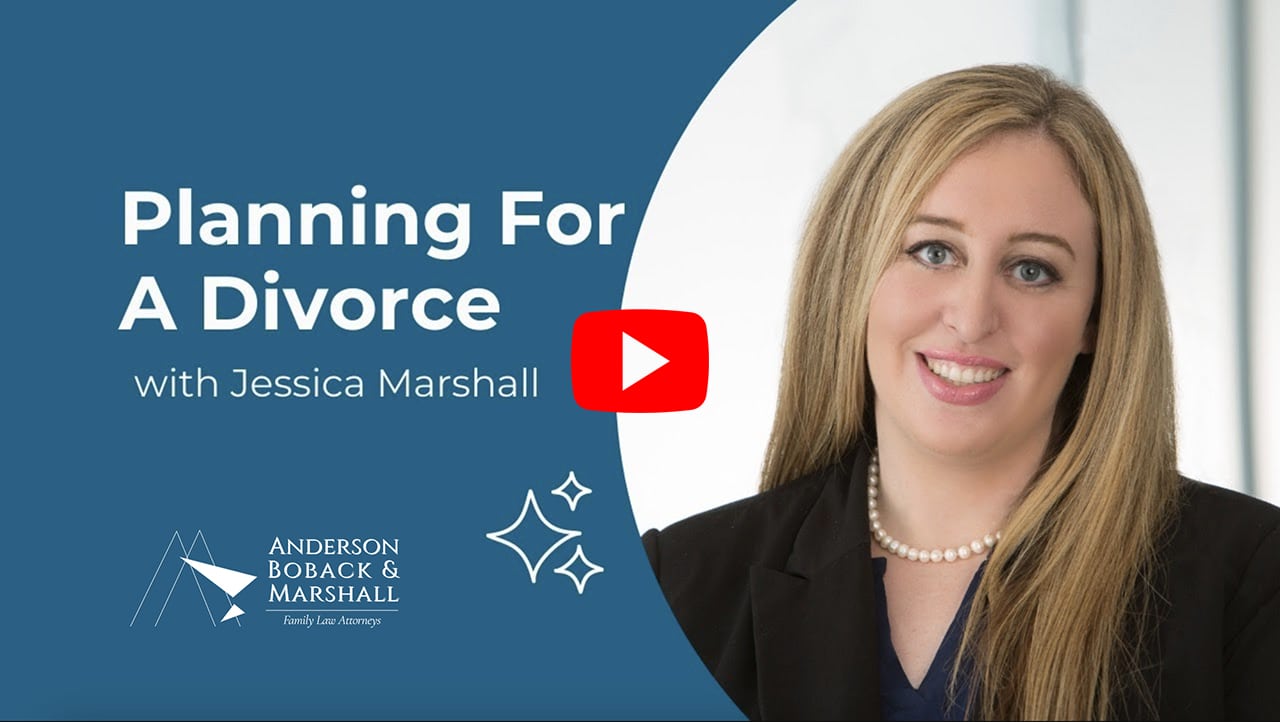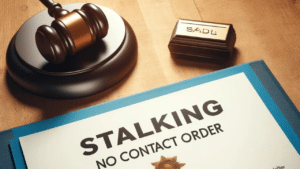
Home / Order of Protection
Order of Protection
Advocates for Victims of Domestic Violence
If you’re suffering from any form of domestic abuse, the Illinois legal system provides support through an Order of Protection. Allegations of domestic violence must be taken very seriously, as you have a right to feel safe and free from any threats of physical or mental harm from your spouse or anyone else. Everyday Chicago courts grant orders of protection to parents and their children to keep them safe from harm and being threatened, stalked, or put in danger.
Protective orders place legal restrictions on the abuser as the court may order that individual to adhere to requirements that further ensure your safety such as relinquishing any firearms or attending court-mandated domestic violence programs. Protective orders are issued as a civil order rather than in a criminal order.
In this video, our founder, Kim Anderson discusses the difference between an order of protection and a civil no contact order. She walks you through the key requirements to be granted a successful order of protection.
Anderson Boback & Marshall have more than 25 years of experience protecting individuals through legal orders of protection in the state of Illinois.
Types of Domestic Violence
It’s important to understand that domestic violence can come in many forms, not just physical abuse. Domestic violence includes physical or psychological abuse, which includes verbal abuse, harassment, threats, stalking, and intimidation.Examples of domestic violence and abuse include, but are not limited to, the following:
- Physical abuse
- Threatening to cause physical harm
- Child abuse
- Restraining a person against their will
- Reckless endangerment
- Emotional and psychological abuse
- Stalking
- Trespassing
- Animal abuse
Types of Orders for Protection
There are three types of orders of protection in Illinois, with the main difference being the length of time it is enforceable. Depending on the issues in your case, the judge may order the abuser to stop all contact with you or specify the limited requirements.The three different types of protective orders include:
- Emergency Order of Protection – (21-day term) the emergency order may be granted immediately, lasting for a temporary 21 days. To extend the emergency order, the petitioner must attend a hearing. At the end of the 21-day period, a hearing will be held to determine if the petition should be extended or if it will be terminated.
- Interim Order of Protection – (30-day term) an Interim Order of Protection is used to extend the emergency order past the expiration date in the event a hearing could not be scheduled in time. The person accused must have been notified of the hearing or have appeared before a judge.
- Plenary Order of Protection – (2-year term) a plenary order can last up to two years and is issued after both sides have presented their evidence in a hearing and the victim’s case has been proven.
Protection For Animals Under the Illinois Domestic Violence Act
The Illinois Domestic Violence Act (IDVA) now includes protections for animals as part of an Order of Protection. The court may grant custody, care or control of an animal owned by the respondent, petitioner or minor child, or order the respondent to have no contact with the animal. If an offender violates a protective order by committing the criminal act of cruel treatment to animals, they may be charged with a Violation of an Order of Protection, VOOP. Even if there is no protective order, threatening or harming a pet can also be considered harassment under the IDVA. If you are concerned about the safety of your pet, contact the domestic violence attorneys at Anderson Boback & Marshall for guidance in how to protect your beloved animal.What if an Order of Protection is Served on Me?
Standing Up for Those Who Have Been Falsely Accused False accusations of domestic abuse are often made during contentious and volatile divorces. This is unfortunate, as many people need orders of protection, and people seeking them without needing them, hurt other people’s cases. You need to take precautions however, from becoming a victim to a false allegation of abuse in a divorce case. The next most important thing for you to do is to contact a domestic violence attorney at the family law firm of Anderson Boback & Marshall. We help to defend the false accusations against you in court and facilitate a discharge of the accusation. We help people facing false allegations of domestic abuse, spousal abuse, partner abuse, child abuse, neglect and any other type of domestic violence situation in Chicago and the surrounding areas, including Cook County, Cook County, Kane County, DuPage County, McHenry County, Will County or Lake County. If you have been falsely accused of abuse, you need to protect yourself and you need to do it now. Our skilled legal team has been committed to helping people resolve all types of family law issues and achieve fair outcomes. Contact us today to discuss your situation and immediate needs during a confidential consultation.Call Anderson Boback & Marshall When You Need a Domestic Violence Attorney
Domestic violence should not be taken lightly. When you need a domestic violence attorney to protect you from harm, call on the knowledgeable and experienced domestic violence attorneys at Anderson Boback & Marshall. We help you to gather the critical supporting evidence including police reports, victim testimony, medical records and evidence of injuries. If you are the victim of abuse and are ready to obtain a legal protective order in Chicago, it is critical for you to have an advocate helping to navigate the process.
Anderson Boback & Marshall are Chicago domestic violence attorneys ready to help you with all of your family legal matters. Our team of family law attorneys will help you to understand your rights to seek a protective order, explain your options and guide you throughout the legal process. Contact us today to learn how to you can successfully obtain an Order of Protection.

















